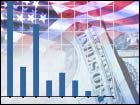|
Economists call it recession
|
 |
November 26, 2001: 1:58 p.m. ET
Panel says downturn began in March, ending record 10-year span of growth.
|
NEW YORK (CNN/Money) - The world's largest economy sank into a recession in March, ending 10 years of growth that was the longest expansion on record in the United States, a group of economists that dates U.S. business cycles said Monday.
The National Bureau of Economic Research (NBER), composed of academic economists from Harvard, Stanford and other universities, joined a chorus of economists and investors who were saying that a recession had already begun. The group posted its decision on its Web site.
It ruled that the long expansion ended in March and the nation's tenth recession since the end of World War II began at the same time. The declaration means the longest expansion lasted exactly 10 years. The previous record for uninterrupted economic growth was set in the 1960s, a period of eight years and 10 months lasting from February 1961 to December 1969.
At the White House, President Bush, whose father lost the White House partly as a result of the country's last recession, said the declaration added urgency to the need to get a package of economic stimulus measures approved by Congress and passed into law.
"I knew the economy was not in good shape right after I took office," he said. "We will do everything we can to enhance recovery."
The president called on Congress to move quickly to pass an economic stimulus so that he will be able to "sign it before Christmas."
The NBER panel is composed of six economists, including Martin Feldstein, who served as chairman of former President Reagan's Council of Economic Advisers.
"The NBER's Business Cycle Dating Committee has determined that a peak in business activity occurred in the U.S. economy in March 2001," the panel said in its announcement. "A peak marks the end of an expansion and the beginning of a recession."
|  | |
 |
 |
 |
| |
 Kathleen Hays, CNNfn's economic correspondent, reports on the recession.
Kathleen Hays, CNNfn's economic correspondent, reports on the recession.
| |
 |
The country's last recession begin in July 1990 and lasted until March 1991. But he NBER did not officially declare the downturn over until December 1992. Democrat Bill Clinton used the economy's troubles as a major weapon in his successful campaign to unseat the first President Bush in 1992.
The group also said the economy might have been able to avoid a recession without the impact of the Sept. 11 terrorist attack, which all but shut down the economy for several days and has had a lasting impact on tourism, the airline industry and other businesses.
"The attacks clearly deepened the contraction and may have been an important factor in turning the episode into a recession," said a statement from the private, nonprofit, nonpartisan research organization.
The most common definition of a recession is two or more quarters of a shrinking economy; the nation's gross domestic product, the broadest measure of economic activity, fell 0.4 percent in the third quarter and many analysts said it is probably declining more sharply in the current quarter.
NBER's statement said its determination of a recession is based on monthly rather than quarterly data that it believes are a more accurate gauge of the state of the economy. "The committee gives relatively little weight to real GDP because it is only measured quarterly and it is subject to continuing, large revisions," the group said.
The NBER cited a number of factors in its definition of a recession, including declines in employment, industrial production, incomes and sales.
Some analysts believe the current downturn could be over soon, with the most optimistic calling for a rebound in the first quarter of 2002. Others say the rebound will not come until late spring or early summer.
Click here for CNN/Money's economic calendar
Ben Bernanke, a member of the panel, told Reuters that based on historical data from previous post-war recessions, the U.S. economy is likely to begin a recovery by next July.
The Federal Reserve has cut interest rates 10 times this year - three of those since Sept. 11 - in a bid to keep consumers spending and help lessen the severity of a downturn. 
-- from staff and wire reports
|
|
|
|
|
|

|

